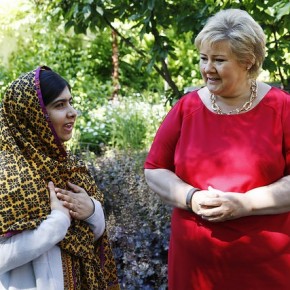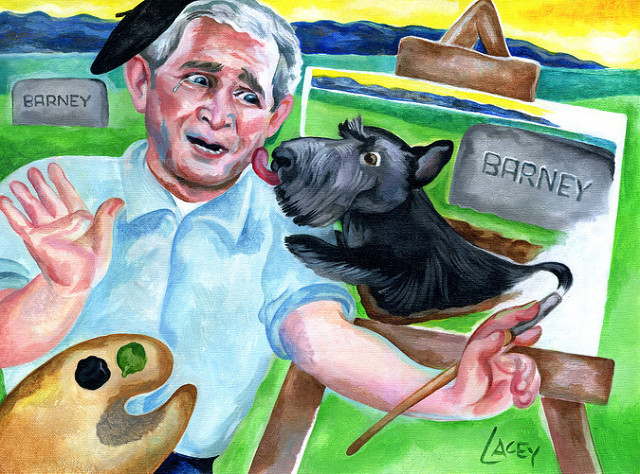Until Bernie Sanders decided to run for President, Democrats in the United States were resigned to an exceedingly dreary campaign. Without being pressed to articulate a vision for people already inclined to vote for her party, Hillary Clinton would have moved farther and farther to the Right, hoping to win over that small but crucial portion of the electorate classified as “undecided”.
That work will probably still need to be done, since Clinton remains the presumptive Democratic nominee. But it will be much more difficult than if she had gone unchallenged, since she will be held responsible for the things she says to ward off Sanders. From the perspective of the party’s elite insiders, this is a troubling prospect, since they would prefer that she win the nomination — as Barack Obama did in 2012 — without having committing to much of anything. For the rest of us on the would-be Left, though, it’s wonderful news.
Ever since the Clintons moved into the White House in early 1993, Hillary has been the target for vicious red-baiting misogyny from conservatives. It didn’t matter that her positions were barely less centrist than those of her “New Democrat” husband. It didn’t matter what she said at all, so long as the hyperbolic criticism helped to advance the Republican cause. And enough of the electorate was responsive to the stereotype of her as a man-hating radical that it became a key leveraging point for the 1994 midterm elections, when Newt Gingrich and his young acolytes launched the Contract with America, and has remained in circulation ever since.
Admittedly, this portrait of Clinton suffered a bit during her bruising primary battle with Barack Obama back in 2008. The Republican machine that had hoped to just rinse and repeat its strategy from the 1990s was confronted by the awkward realization that Hillary was regarded by many people in the Democratic party, particularly those under the age of 40, as both more conservative and more boring than her seemingly-out-of-nowhere opponent. This was worrisome enough to the folks planning to take her campaign down in the general election that they breathed a sigh of relief when Obama pulled off the upset.
Yet because Obama had deftly managed to avoid being pinned down on most policy issues, he did not prove to be an easy nominee to rally undecideds against. Sure, the latent racists and haters of all things “foreign” who lurked in the Republican base were easy to mobilize. But the majority of the people the John McCain team needed to excite were not sure what to criticize Obama for besides his lack of experience.
That’s why the strategy deployed against the Clintons in the 1990s ended up being repurposed in 2008 and, to a large extent, afterwards. As a black man with a funny name, Obama was sufficiently “other” to be hammered into the slot that had been created for Bill’s bitter feminist spouse. It helped that, like Hillary, he was preternaturally cool. And the fact that he was considerably more adept at using the new media opportunities afforded by the fragmentation in broadcast radio and television and the dispersal of content onto the internet didn’t cause too much of a problem, because the people open to this more flexible and variegated approach to outreach weren’t usually the sort likely to vote Republican anyway.
Anyone who held out hope for the revival of socialism, American style, had to find this continuity intensely frustrating. When self-described centrists, the equivalent to Tony Blair in the United Kingdom, were being so effectively red-baited, how could ideas they had rejected as too radical ever secure enough mainstream press coverage to make an impact? It felt like the very idea of the Left in the United States — not unlike political correctness — had been so thoroughly co-opted by conservatives that it might have to be abandoned entirely.
Still, there was Bernie Sanders, proudly declaring himself to be a socialist in the present and comfortable with his semi-radical past. As much of an exception as the state of Vermont may be on the post-1960s electoral map, the sheer fact that he was sitting in the still-somewhat-patrician Senate while remaining too far to the Left to be included in the Democratic fold was the proverbial ray of hope in otherwise stormy weather.
The reason why Sanders’ decision to challenge Clinton in 2016 is deeply significant, even if she does end up pulling off an easy win, is that it will serve to counteract the strong rightward shift of American political discourse over the past four decades. Clinton will have to make some rhetorical concessions to the potential voters excited by Sanders’ persistent focus on bread-and-butter economic issues and become more of a populist as a consequence. She will, in short, have to refashion herself more along the lines of the conservative stereotype of her than how she has actually comported herself in the public sphere.
Mind you, there’s little hope of her actually becoming anything we might legitimately call “left wing”. But at least she won’t come off as someone so eager to achieve her goals that she has made herself into a flightless chicken with two right wings. Who knows? Maybe, like not-so-lame duck Obama, she will get in touch with her inner rhymes-with-bucket badass and strike actual fear into the Republican Party for once.
Photo courtesy of Carla Marinucci.





